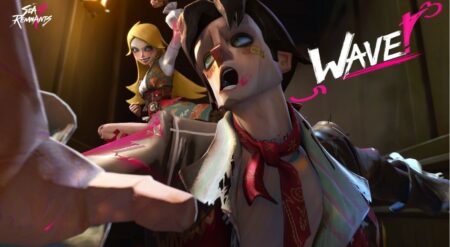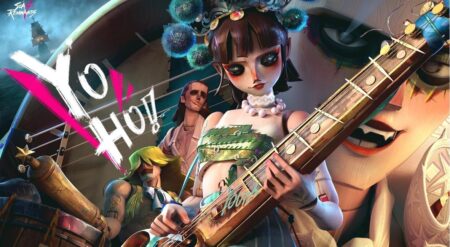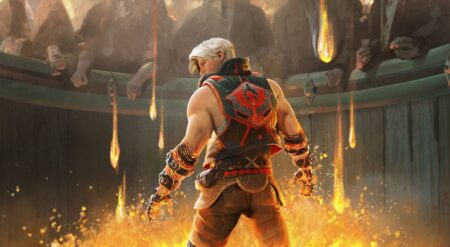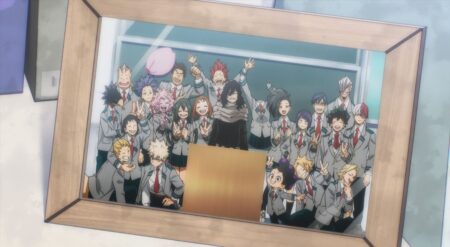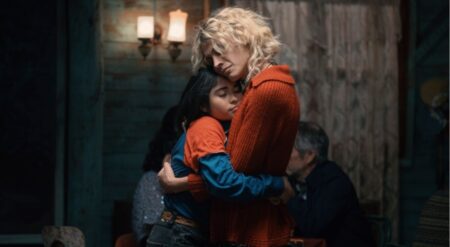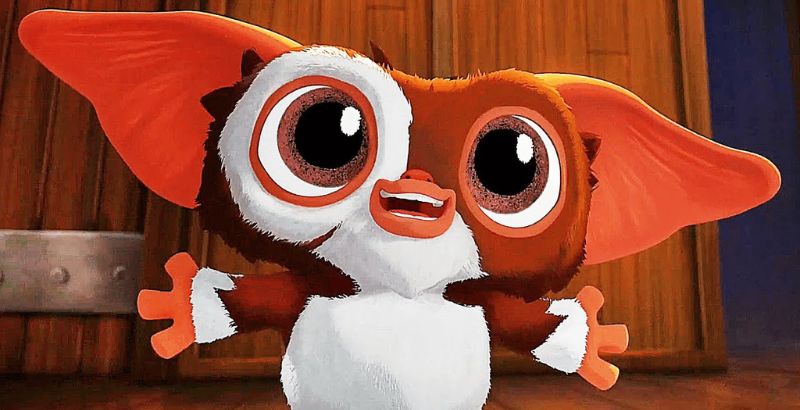
Far too often in western media that has depicted East Asia, or really anywhere in Asia or North Africa, or any person from “the East,” you would find that these depictions. default to Orientalism: an exoticization of these regions and their peoples that denotes western superiority. It’s often and especially present in the music for these properties, aiming to paint these regions and peoples as “exotic” with vapid sounds taken from the surface of the rich legacies of music in “Eastern” countries. However, even while the composer space isn’t as diverse as it could be, more Asian composers are making their way onto the scene, undoing the Orientalism that has painted their communities with culturally rich and specific soundtracks that fulfill the promise of representation for the new Asian led stories being told. One such composer is Chinese-American composer Sherri Chung.
She was the composer for Gremlins: Secrets of the Mogwai and the CW’s Kung Fu, as well as a variety of other TV projects. As a panelist of Rhapsody PR‘s event “Supersonic: Behind the Music,” Chung elaborated on her career, and we had the chance for a 1:1 conversation with her afterward. We discussed the projects for which she’s composed, how she’s learned to embrace more of her own Chinese heritage through her work, her support for the Actors and Writers Strikes, and much more.
This interview has been edited for length and clarity.
BUT WHY THO: Thank you so much for speaking with us. So I’m a fan of the Arrowverse and you’ve been part of composing for a lot of its shows. What’s it like composing for superhero media?
Sherri Chung: It’s fantastic. I’ve worked a lot with Blake Neely who’s [composed on] all of the Arrowverse shows. And so when he brought me on, to work with him on Supergirl and Legends of Tomorrow, it was it was a fantastic experience. I mean, working with superheroes is super fun. You get all the emotion, you get the adventure, you get the big heroic moments. Those are always super, super important, I think. And it is super fun, in a storytelling way because it’s grounded, but it’s also it’s a superhero. There’s a huge like suspension of disbelief. So it’s actually a really fun process.
BUT WHY THO: Even though Kung Fu wasn’t technically a superhero show, it was essentially, with a Chinese-American hero, and I have to think that for you that was really meaningful. So what was it like composing for that show?
Sherri Chung: Yeah, Kung Fu was such a special show to me. It was also the first show of its kind really to be putting an all Asian cast [on screen], an hour long drama, network drama, and that’s really great. There’s a calling to to bring some authenticity into it. I worked with an Ehru player and a lot of specifically Chinese percussion instruments. That was fun to do. I also worked with a with a quartet that had nothing to do with the Asian cultural specificity, but still I think it’s really important for Hollywood to be sort of normalizing that kind of cast on our programs. That makes a difference.
BUT WHY THO: And the creatives behind it.
Sherri Chung: Absolutely, and that’s they were trying to do, to really change it up, and create a new narrative, and to be a part of that, I think is really important, especially as an Asian-American myself who’s half-Chinese half-Caucasian, so that’s really exciting to be part of that.
BUT WHY THO: Absolutely. I’m a huge fan of Gremlin: Secrets at the Mogwai even though I never watched the original Gremlins movies, I just saw saw this series Tze Chun was creating and I was like, “I’m interested in this,” and I think specifically, and this is shared across both Kung Fu and Secrets of the Mogwai in that both are based on pre existing IP that, let’s just say, could be a bit Orientalist and stereotypical of East Asian cultures. But what I love about these new projects is that they’re taking what didn’t work before and recreating actually with East Asian creators. So what was it like for you to imbibe that Chinese cultural specificity into it as a Chinese-American yourself? And how was that empowering to you?
Sherri Chung: I think it’s great. This is what’s so great about about Tze and his whole vision for it. But what was great about Tze, and the other producers as well, as he said “Lean into that we are in Shanghai in the 1920s.” I mean even there, right they had all kinds of real Chinese folklore, real Chinese characters from myth and legend and they were incorporating it in there. The music needs to support that. It is mainly just an orchestral artistic jazz. It’s mainly an orchestral score without a cultural lean in either way. But putting [the Chinese aspect] there, I think it’s really important. I think it’s something that we don’t have to shy away from, but I did have to do some research on some things.
There was definitely an episode, I think it was episode 3, where we had Odd Odd as part of the Chinese opera [sequence]. And they warned me about it”Okay, so if you know anything about Chinese opera, be prepared” I really didn’t. I did some research and I said “Wow, Chinese opera is difficult to listen to.” It’s a very specific taste and, and to me, it’s obviously a very, very dramatic [thing], but it’s not it was not the kind of dramatic sensibility that was going to work in the show verbatim as it was. It was a logistical and creative to find a way to kind of work. So some of the instruments I traded out. There’s there’s an oboe-like instruments in the Chinese opera setting and I changed it out for an actual oboe. I tried to make things a little bit more dramatic, stage wise. So, that’s one of different ways we’ve tried, and it’s been challenging, but I think in a good way. And [for] me as a storyteller in through music, that’s always what I’m looking for. Something challenging.
The WGA and SAG-AFTRA strike is still going to get fair wages and better employment protections. Want to learn more? Check out this interview.
BUT WHY THO: And also in learning about your own culture and where your family’s from. I’m wondering if you could elaborate a little bit more on that.
Sherri Chung: Yeah. And it’s actually really amazing that you say that because between both Gremlins and Kung Fu, I actually really did connect with my background a lot more. I was born here in the States. My father is Chinese, his parents were from China, but I wonder sometimes if my dad grew up in that “muted color” immigrant story where your parents come over really wanting you to say and look like these Americans as much possible, and so some of his culture, which is my culture, sort of got muted a little bit. There was no shame about it, it was just, “Okay, just leave that as much as you and be American.” So I feel like I didn’t really connect with my Asian background as much had my dad really brought us up differently.
And so in researching the music, I talked to my dad about it and asked, “Did you listen to Chinese Opera growing up?” And he said “Oh, yes. My mother listened to her. She loved it. I couldn’t stand it.” I mean, even just talking about like, “Hey, how do you feel about all this?” it was actually really great. In Kung Fu, I thought that with some of the scenes that I see the parents, having and the writing, I thought, “Wow, I wonder I wonder if my grandparents when they came over, I wonder if they felt that.” I wondered if these were anything like the conversations that they might have had with racism and the difficulty of my grandparents owning a laundromat. It’s one of those things where you just kind of you wonder. Unfortunately they’re no long with us right now. So, I can’t ask them but I can talk to my dad about it. I was it’s a special thing. We connect that way.
BUT WHY THO: That’s amazing. And also on Tze, he is out on the picket lines. I remember seeing a picture of him literally protesting in front of a Secrets of the Mogwai, sign, which is kind of bizarre. None of these amazing shows would exist without the amazing writers and actors. And currently they are on strike asking for their basic essentials and protections against AI. So, I’m curious, is there anything you can say about the strikes what you hope for what you think is needed at this current moment?
Sherri Chung: 100% I’m in full support of the writers and the actors. 100%. And, yeah, I think it’s really important. I think that those professions are unmatched to me. It’s art, but it’s also culture. And I think that’s really important to uphold, not just in our industry, but certainly in our country. A lot of it starts here. The streaming platform is obviously a great development in our entertainment industry. But the respect needs to be there and the respect of craft and the valuing of craft, and of art and creativity. I think is really important. So I’m hoping that we’re gonna say, “Yeah, that’s it. We’re all good.” All of us are obviously hoping that it’s settled soon enough so we can get back to work, but I do want to get settled in that way because it’s groundbreaking. I mean, if this is what civilization is progressing and so now we need so we need to work in the right ways and have the right regulations and the right pay. And we all benefit from it. It only works when everybody is succeeding
With Sherri’s work, there is hope for more influx of Asian composers throughout a wide variety of media, including film, tv, video games, and more. Secrets of the Mogwai and Kung Fu present prime examples of this working for previously problematic media. But even besides that, the music Sherri composed for these projects is beautiful to listen to. We can’t wait to hear more from her.

